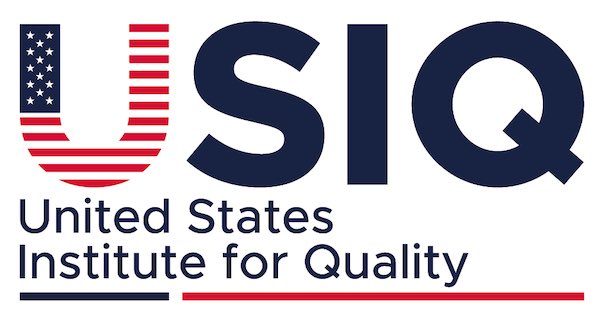Generation X, Y, Z: The Difference Between the Generations in the Workplace
Understanding the unique attributes and workplace impacts of Generation X, Y, and Z, is essential in today’s diverse work environment. This article focuses on the distinctive characteristics of these generations and offers insights on managing a multigenerational workforce effectively. Emphasizing the concept of “Generation XYZ,” we explore the differences that define each generation in the current job market.
Why is it important to understand different generations in the workplace?
Understanding the different generations is important for creating a cohesive and productive work environment.
Consider Gen X Joe from finance, who values traditional ways and clear organizational structures, and Gen Z Sarah from communications, who excels in a team setting and values regular feedback. These differences are because of generational preferences. And balancing these different work styles is crucial for creating a workplace that works.
By recognizing these differences, we create a work culture that is rich and diverse. This culture draws on the strengths of all employees, which helps the company meet the diverse needs of its customers.
What’s The Difference Between Generation X, Y, and Z
As we’ve established the significance of recognizing generational differences, let’s delve into the nuances that set apart Generation X, Y, and Z.
Generation X: Efficient Coaches

Members of Generation X were born between the 1960s and the 1980s. This group often goes unnoticed between the larger numbers of baby boomers and the more visible Generation Y.
Yet, they are vital in many workplaces. They combine independence with solid skills and a strong work ethic. They help bridge the gap between older and younger generations, easing the way for the next wave of workers.
Here are some of their traits:
- Born in a time of change
- Valued for their independence and practical skills
- Known as “latchkey kids,” capable of self-management
- Key players in team dynamics
- Prefer genuine recognition over grand gestures
They grew up during times of change, with more dual-income families and higher divorce rates. This made them self-reliant and capable of working well without much guidance.
Generation Y or Millenials: Flexible Team players

Born between the early 1980s and mid-1990s, millennials entered a world full of new technology and changing job scenes. They’ve caught attention for their unique trends, like the gig economy. But there’s more to this generation. They value:
- Engaging work that feels meaningful
- Ambition with the flexibility to work when they choose
- A balance between their jobs and personal lives
- Trust in their employers
- Making a positive impact
Millennials excel in team environments and appreciate a workplace that supports flexibility. Alongside this, for them, a job represents more than a source of income; it’s an opportunity to effect change and contribute meaningfully.
This generation places a premium on feedback and open communication, seeking growth and development in their careers. The desire for work-life balance is increasingly prominent, particularly with options for remote work becoming more available.
Generation Z: Creative Multi-Taskers

The youngest generation in the workforce (born 1997 to 2012), Generation Z, or Zoomers, were born into a tech-saturated world. They are comfortable with technology and are adept at handling multiple tasks at once. Gen Z brings innovation and a desire for meaningful impact in their work.
Key traits of Generation Z include:
- High proficiency in technology
- Ability to multitask effectively
- Emphasis on creativity and fresh ideas
- Commitment to sustainability and the environment
Employers should create workplaces that resonate with Gen Z’s values and aspirations.
Zoomers, the most diverse and educated generation in the workforce, are not shy about their expectations—they demand diversity and inclusion in their workplaces. The economic challenges they’ve witnessed, such as the recession and pandemic, have profoundly shaped their social consciousness.
What Do Generation X, Y, and Z Expect from their Employer?

As you can see, each generation comes with its own set of expectations in the workplace, and employers need to be mindful of this diversity. Here’s a breakdown of what they expect from their employers:
Generation X
Generation X values a work-life balance highly, favoring roles that respect their individual time and autonomy without excessive oversight. They seek environments where they can excel on their own terms yet contribute meaningfully within a team context, all while having ample opportunity to enjoy life outside work.
Generation Y or Millennials
Millennials have an appetite for meaningful engagement at work. They prioritize workplaces that promote openness, inclusivity, and adaptability. Their aim is to connect personal growth with professional development — aspiring towards organizations whose missions extend beyond just financial success into realms of wider social or environmental impact.
Generation Z
On par with millennials’ aspirations, but adding more emphasis on wellbeing, are those from Generation Z who are searching not merely for employment but also for places that align with their value systems and advance their future goals. This newest working generation seeks reinforcement in mental health support alongside strong monetary rewards as part of the package when joining any organization.
What are the Challenges of Working with Different Generations?
Understanding the expectations of each generation is key, but the real challenge lies in harmonizing these diverse needs within the workplace.
Rules and Hierarchies
The baby boomer generation values traditional corporate structures and expects respect for those hierarchies. Millennials and Generation Z, however, prefer a more open and flexible workplace. They value ideas and transparency more than job titles and expect autonomy in their roles.
Differences in what each generation expects can sometimes cause tension. But these differences also offer chances for progress. Workplaces can create a positive and productive environment by adapting management styles to meet the diverse needs of all age groups.
Work/Life Balance
Gen X, Millennials, and Gen Z all seek a good balance between work and life. This common goal challenges traditional work practices that often involve long hours and strict schedules.
Gen X set the stage for this balance, seeing it as a basic expectation. Millennials and Gen Z have taken it further, making it a key part of their work philosophy. They often choose jobs that let them grow their careers and personal lives together.
Independence
Workplace independence looks different for each generation. Generation X grew up as latchkey kids and learned to rely on themselves. They work best with freedom and little need for praise.
Millennials and Generation Z, however, grew up with instant rewards and constant feedback. They look for regular signs that their work matters. Managers need to balance giving space and offering support. This way, everyone feels valued and part of the team’s success.
Purpose and Culture
Millennials and Gen Z have changed what’s important at work. They care more about their company’s goals and culture than just the salary. These young workers want jobs that match their own beliefs and values. Companies now need to offer more than good pay; they have to show that they have meaningful goals that connect with what these workers care about.
Creating a workplace that values everyone’s input is key. It’s a place where different viewpoints are not just accepted but valued. A place where everyone can share ideas freely and every voice, no matter the age, is listened to. This kind of culture doesn’t just attract people; it keeps them.
Technology
In today’s workplace, different generations use technology in their own ways. Gen Z grew up with tech and saw it as a normal part of life. Millennials adapted quickly to tech changes and now rely on it heavily. Gen X remembers life before the internet. They use tech well but more as a tool to get things done.
Baby boomers may be cautious with new tech. They sometimes feel overwhelmed by constant updates, so companies need to help everyone use digital tools. This way, every generation, from boomers to Gen Z, can work well without feeling left out by the latest workplace technology.
Loyalty
Today’s workers see loyalty in a new light. Baby boomers often stayed with one employer their whole career. Now, younger workers like Gen X and Gen Z change jobs more, as they want work that fits their values and helps them grow.
Companies need to keep up. They should create work environments that offer growth and a positive culture. This approach helps keep workers from all generations committed and happy.
Improving Your Workplace with USIQ
At USIQ, we enhance employer branding through our prestigious seals of approval, including “Top Employer,” “Family-Friendly Employer,” and “Climate-Neutral Company.” These accolades act as powerful testimonials to a company’s dedication to a supportive and inclusive workplace.
By earning these awards, organizations can strengthen their reputation and attract top-tier talent from all generations, from baby boomers to Gen Z, positioning themselves as leaders in fostering a forward-thinking work environment.

